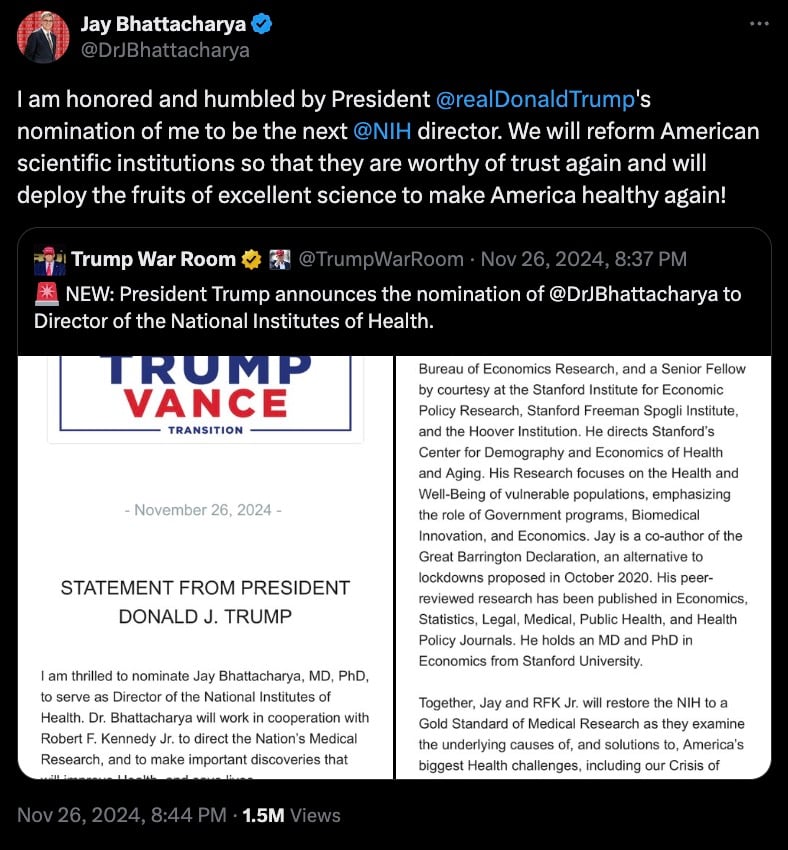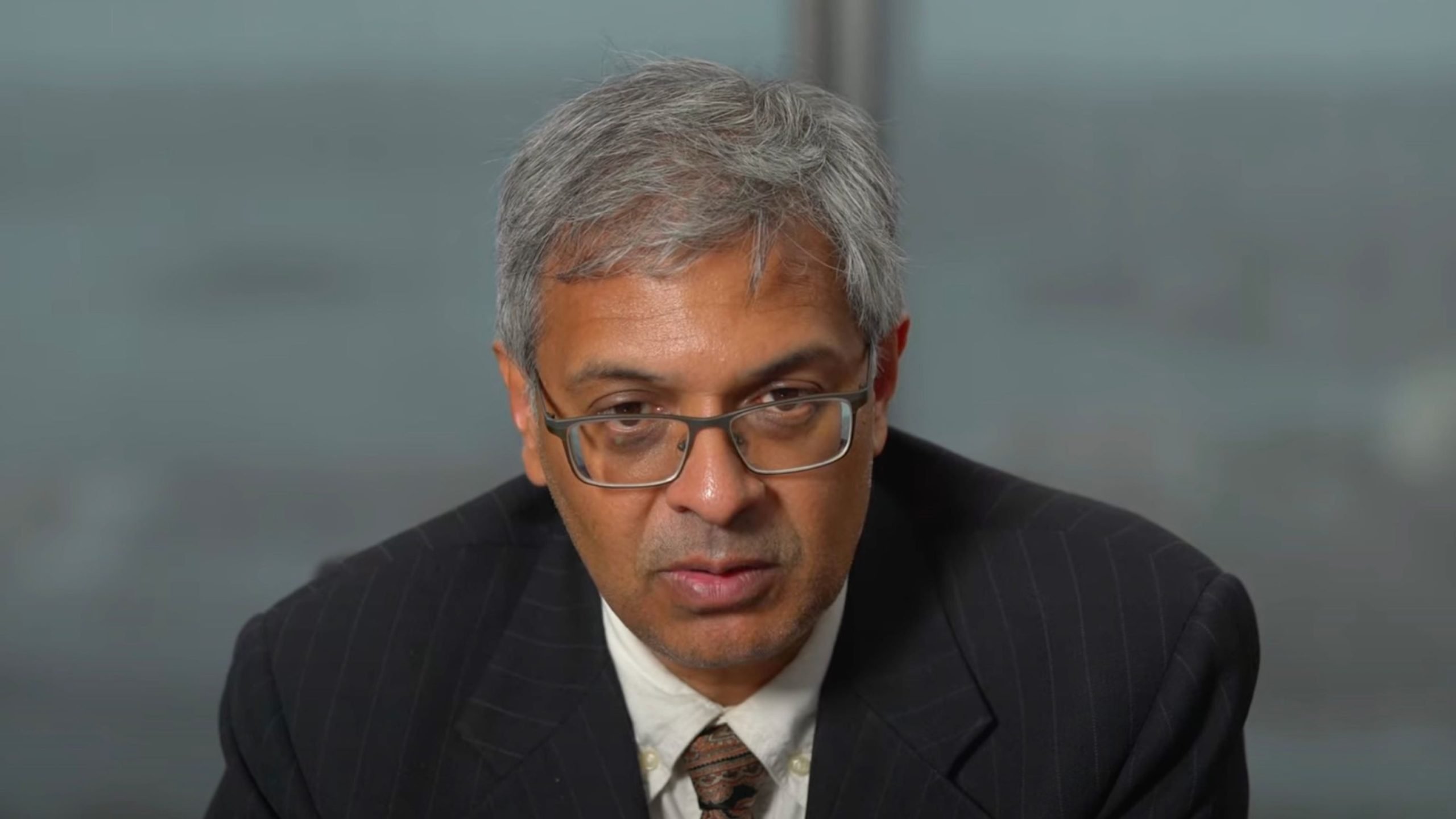With a decision that has garnered the attention of both supporters and skeptics of America’s public health establishment, President-elect Donald Trump has chosen Dr. Jay Bhattacharya to lead the National Institutes of Health. For a nation battered by years of pandemic policies, conflicting narratives, and public mistrust, there’s more to this nomination— it’s a declaration.
Dr. Bhattacharya, a Stanford professor and a leading voice in health policy, has been a consistent advocate for evidence-based decision-making and open scientific discourse. During the COVID-19 pandemic, he gained national attention for his principled stance against lockdowns and sweeping mandates, which he argued caused more harm than good. Now, he’s poised to bring that same conviction to one of the most influential scientific institutions in the world.
Rather than being welcomed as a critical voice, Bhattacharya faced vilification from a system allergic to dissent.
Fighting for Free Speech in Science
Perhaps Bhattacharya’s most defining moment came when he fought back against censorship. The Stanford professor became a plaintiff in a landmark lawsuit accusing the Biden administration of colluding with Big Tech to silence dissenting voices on public health.
The suppression of ideas, Bhattacharya argued, isn’t just an affront to the First Amendment; it’s antithetical to the scientific method. By standing up, he wasn’t just defending his views but ensuring that future debates about public health policy could happen in the open, where they belong.
A New Era for the NIH
With his appointment as NIH director, Bhattacharya is stepping into a role that carries enormous responsibility. But for a man who has spent his career challenging conventional wisdom, this is an opportunity to turn the page on a period of public disillusionment with science.
In an X post following the announcement, Bhattacharya, who was once blacklisted from Twitter under the old regime, promised to reform America’s scientific institutions to make them “worthy of trust again” and to ensure that NIH-funded research would focus on improving health outcomes for all Americans.

President Trump underscored this vision, calling Bhattacharya a leader who will restore the NIH to its “Gold Standard” while addressing America’s greatest health challenges. Paired with Robert F. Kennedy Jr., another advocate for reform, Bhattacharya is set to tackle systemic issues such as chronic illness, skyrocketing healthcare costs, and the erosion of public trust in science.








